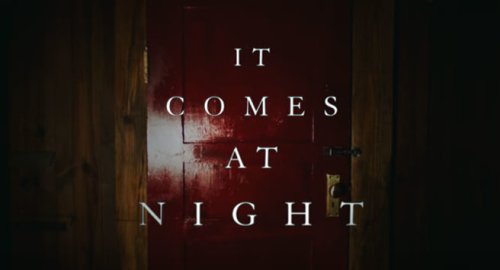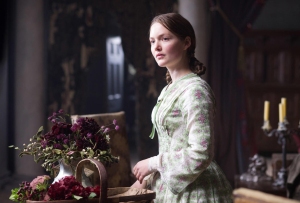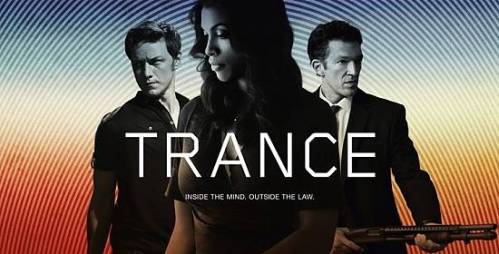Star Rating: 3/5
Director:
- Trey Edward Shults – Krisha
Cast:
- Joel Edgerton – Animal Kingdom, Warrior, Zero Dark Thirty, Exodus: Gods And King, The Gift, Red Sparrow
- Riley Keough – Magic Mike, Mad Max, We Don’t Belong Here, Welcome The Stranger
- Christopher Abbott – Martha Marcy May Marlene, A Most Violent Year, Criminal Activities, Tyrel
- Carmen Ejogo – The Purge: Anarchy, Selma, Alien: Covenant, Roman Israel, Esq.
- Kelvin Harrison Jr. – The Birth Of A Nation, Mudbound, Assassination Nation
- Griffin Robert Faulkner
Music Composer:
- Brian McOmber – A Teacher, Krisha, Collective: Unconscious, The Last Shift
There are some films that are titled in such a way as to give viewers the wrong impression of the movie. Silence of the Lambs was about a serial killer and had merely a passing mention to its title; Heavenly Creatures was not about idyllic angels placed on Earth, but two psychopathic, pretty girls; and Batman v Superman was merely a headache-inducing, money-spinning ruse of a title to kick start the Justice League franchise. Similarly, It Comes At Night is mistitled and, consequently, misdirects its audience in a negative way.

Paul (Joel Edgerton) questioning Will (Christopher Abbott), who he has tied up to a tree and gagged, after Will broke into his house.
It Comes At Night is a film, set in an eerie forest in America. Disease/plague is rampant and Paul (Joel Edgerton), the militant patriarch of his family of three, will do whatever it takes to make sure his family do not become infected; even going so far as not to let anyone open the front door without his permission, to ensure that the disease does not come in.
But one day, a stranger called Will (Christopher Abbott) breaks into his house and begs for them to let him and his family enter. They have no other way of surviving the plague. Paul is suspicious, but lets them in. However, not long after Will and his family arrive, Paul’s son Travis (Kelvin Harrison Jr.) finds the front door open. Who did it? Who has potentially let the disease into the house?
It Comes At Night is a bad choice of title considering it is a film about (incurable) disease, the fear it brings, and the behaviour (paranoia) it manifests in people as a result. Nonetheless, disease does not just come at night; it can come during the day too. This is the first problem with the movie.
The second is that the film’s title does not epitomise the movie it wants to be. From the sound of it, one would think It Comes At Night is a paranormal horror film. There are a couple of jump scares, but not enough for the movie to be marketed as a horror film. Very soon, it becomes apparent that the tone of the movie is wrong for a horror film and that alone is enough to disappoint viewers (especially horror fans).

The door before the front door that must remain locked at all times, and only Paul has the key to it. Paul reckons it is the only way to keep out the disease…
If anything, It Comes At Night is a psychological drama. Through Will and his family, the film raises the fascinating moral conundrum that people faced in the Medieval times when the Bubonic Plague was rife: should people show compassion and humanity to others who need help, despite the risk that this could further spread the disease and kill members of one’s own family; or should people close their doors to strangers until the plague ends, despite this meaning many will die who could have been saved?
The film puts up a decent fist of conveying the conundrum. But there three problems with its execution: one is that not a lot happens, which makes for a dull watch; two, the movie is completely devoid of context and we are none-the-wiser by the end of the film as to what has happened to the world and how Paul’s and Will’s respective families have ended up in respective predicaments; and, three, Will does not come across as a trustworthy individual, which has the distortive effect of making viewers sympathies lean heavily toward Paul (and his suspicions/paranoia) over the needs of Will and his family.
The actors themselves are blameless for the way audiences see Paul and Will. Indeed, Joel Edgerton and Christopher Abbott are really good in their respective roles as two (very different types of) fathers doing their best to save their families. Interestingly, Director Trey Shults believes that the father-son relationship is a crucial element to It Comes At Night as he did not have a good relationship with his father growing up. What this means for Travis and Will’s son, Andrew (Griffin Robert Faulkner), is anyone’s guess; particularly Travis. Much is ambiguous about him and it would have been helpful if the film explored his personality in greater detail. But again Kelvin Harrison Jr. is blameless and does well with what he is given.
Additionally, Brian McOmber’s score growls and helps the audience feel the claustrophobia of the situation. Indeed, it deserves for something to build up to a climax and actually happen (and at night too).
All-in-all, It Comes At Night is a disappointing film. It has a fine cast, an interesting premise, and an important conundrum at its core. For if a disease akin to the Medieval Bubonic Plague returned, mankind may well behave like Paul and Will do in the film. Nevertheless, the sense lingers that something is amiss with It Comes At Night. It is boring, devoid of tension, and incorrectly marketed as a horror film. Ultimately, this all stems from its ill-chosen title.
PG’s Tips

































